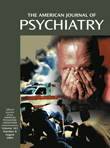Illness Severity and Depression in Multiple Sclerosis
To the Editor: We read with great interest the recent article by Lydia Chwastiak, M.D., M.P.H., and colleagues (1), who should be commended for their efforts to assess illness severity and psychiatric symptoms in a community sample of patients with multiple sclerosis; however, methodological concerns make interpretation of their findings difficult.
Our primary concern involves the use of a self-report version of the Expanded Disability Status Scale as a measure of illness severity in multiple sclerosis. The physician-completed Expanded Disability Status Scale has been criticized for its psychometric properties and inadequate sensitivity to multiple sclerosis-related changes (2). Measures such as the Multiple Sclerosis Functional Composite, developed by a special task force of the National Multiple Sclerosis Society, have demonstrated reliability, validity, and sensitivity to multiple sclerosis-related change (3). It may be useful to consider use of more psychometrically sound measures of multiple sclerosis illness severity in future studies.
Another concern we have is the use of the Center for Epidemiologic Studies Depression Scale (CES-D Scale) (4) to measure depressive symptoms in a multiple sclerosis population, as it assesses somatic symptoms common to both depression and the chronic neurological illness. In general, the assessment of depression in medical illnesses is complicated for just such symptom overlap. Furthermore, the authors’ definition of groups based on CES-D Scale scores makes an etiological assumption regarding symptoms that may not be true.
The authors discussed use of two different cutoff scores—16 and 21—to identify clinically significant depressive symptoms but used the more liberal of the two in their primary analysis. However, it is possible to obtain a CES-D Scale score of 12 based on potentially multiple sclerosis-related symptoms alone. Dr. Chwastiak and colleagues addressed the issue of symptom overlap by eliminating somatic CES-D Scale items in one of their analyses. Unfortunately, the authors did not present readers with a table of unadjusted means to allow meaningful comparison of patients’ scores on the full CES-D Scale vis-à-vis the scores on the modified CES-D Scale.
These limitations aside, Dr. Chwastiak and her colleagues made a commendable effort to determine the association of depressive symptoms with the course of multiple sclerosis. We agree wholeheartedly with the authors’ recommendation for awareness and assessment of depression in this population, as treatment has been shown to be quite effective.
1. Chwastiak L, Ehde DM, Gibbons LE, Sullivan M, Bowen JD, Kraft GH: Depressive symptoms and severity of illness in multiple sclerosis: epidemiologic study of a large community sample. Am J Psychiatry 2002; 159:1862–1868Link, Google Scholar
2. Hoogervorst ELJ, Kalkers NF, Uitdehaag BMJ, Polman CH: A study validating changes in the Multiple Sclerosis Functional Composite. Arch Neurol 2002; 59:113–116Crossref, Medline, Google Scholar
3. Rudick RA, Antel J, Confavreux C, Cutter G, Ellison G, Fischer J, Lublin F, Miller A, Petkau J, Rao S, Reingold S, Syndulko K, Thompson A, Wallenberg J, Weinshenker B, Willoughby E: Recommendations from the National Multiple Sclerosis Society Clinical Outcomes Assessment Task Force. Ann Neurol 1997; 42:379–382Crossref, Medline, Google Scholar
4. Radloff LS: The CES-D Scale: a self-report depression scale for research in the general population. J Applied Psychol Measurement 1977; 1:385–401Crossref, Google Scholar



